
June 13
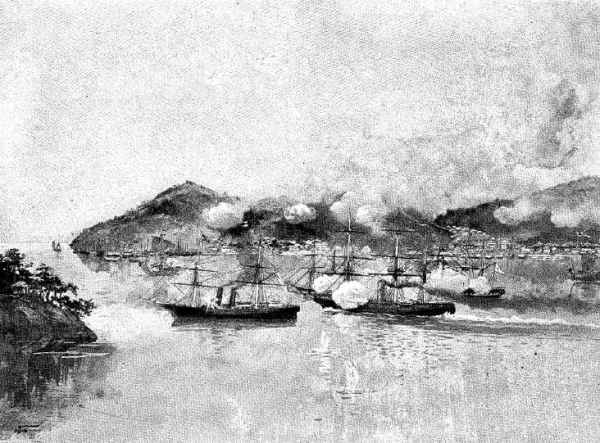
1867 A US naval force raids Formosa in reprisal for the murder of a crew of shipwrecked American sailors.
[See: Wunderwaffen: Hitler's Deception and the History of Rocketry.]1884 Birth: Anton Drexler: Co-founder (with Gottfried Feder and Dietrich Eckart) of the "German Workers Party" (DAP), which will become the Nazi party.
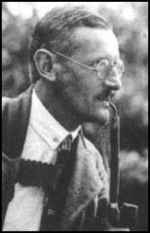
Anton Drexler was born in Germany on 13th June, 1884. He worked as a machine-fitter before becoming a locksmith in Berlin in 1902. A fervent nationalist Drexler was upset when he was rejected as unfit to serve in the German Army during the First World War.
In 1919 Drexler joined with Gottfried Feder and Dietrich Eckart to form the German Workers' Party in Munich. Adolf Hitler joined the party soon afterwards. He was only the fifty-fourth person to join the party. Hitler was immediately asked to join the executive committee and was later appointed the party's propaganda manager . . . . Adolf Hitler was often the main speaker and it was during this period that he developed the techniques that made him into such a persuasive orator.
Hitler successfully persuaded Drexler that the GWP should change its name to the National Socialist German Workers Party (NSDAP). In February 1920, Hitler and Drexler published its first programme which became known as the "25 Points." In the programme the party refused to accept the terms of the Versailles Treaty and called for the reunification of all German people. To reinforce their ideas on nationalism, equal rights were only to be given to German citizens. "Foreigners" and "aliens" would be denied these rights.
To appeal to the working class and socialists, the programme included several measures that would redistribute income and war profits, profit-sharing in large industries, nationalization of trusts, increases in old-age pensions and free education. The programme was also reflected the racist views shared by Drexler and Adolf Hitler. It appealed to the Anti-Semitism that existed in Germany at that time by stating that "Citizenship is to be determined by race; no Jew to be a German. On 24th February, 1920, the NSDAP, later nicknamed the Nazi Party [by outsiders], held a mass rally where it announced its new programme. The rally was attended by over 2,000 people, a great improvement on the 25 people who were at Hitler's first party meeting.
Hitler knew that the growth in the party was mainly due to his skills as an orator and in the autumn of 1921 he challenged Drexler for the leadership of the party. After brief resistance Drexler accepted the inevitable, and Hitler became the new leader of the Nazi Party. Anton Drexler left the NSDAP in 1923 and was a forgotten figure by the time he died in Munich on 24th February, 1942.
1886 Bavaria: King Ludwig II is found dead in Lake Starnberg near Munich in mysterious circumstances. [For further information, click here.]
1887 Birth: Bruno Frank: German author. Frank studied law and philosophy in Munich where he later worked as a dramatist and novelist until the Reichstag fire in 1933. Fearing the new government because of his Jewish heritage, he left Nazi Germany with his wife Liesl and lived for four years in Austria and England, then in 1937 finally went to the USA where he was reunited with his friend Thomas Mann and worked for the film industry for the rest of his life.
1914 Countdown to World War I: Kaiser Wilhelm concludes meeting with Archduke Franz Ferdinand:

Kaiser Wilhelm II of Germany leaves Konopischt, Bohemia (today the Czech Republic), the hunting lodge and country estate of Archduke Franz Ferdinand of Austria-Hungary, after a weekend visit.
Although Wilhelm had ostensibly come to admire the lavish gardens at Konopischt, the reality was that he and Franz Ferdinand wanted to discuss Austria-Hungary's insecurities about the tenuous balance of power in the tumultuous Balkan region. In 1908, the Dual Monarchy of Austria-Hungary had annexed Bosnia-Herzegovina, formally still a province of the Ottoman Empire, and populated not only by Bosnians but also by Croats and Serbs. Serbia reacted angrily to the annexation, reasoning that if Bosnia were not under Turkish rule, it should be governed by Serbia. After two successful Balkan Wars—and enjoying support from the Russian empire, the other great European power in the region apart from Austria-Hungary—Serbia had emerged as a more powerful and ambitious nation than ever before, thus threatening the position of the Dual Monarchy, already in decline.
Historical evidence exists to suggest that Franz Ferdinand, at the behest of Austrian Emperor Franz Josef, was intending to extract a promise from Wilhelm (similar to a pledge the kaiser had made in November 1912) that Germany would back Austria unconditionally in the case of a confrontation with Serbia. Wilhelm resisted making such a commitment at the time, however, as he disagreed as to the extent of the Serbian threat. Also at the meeting, the two leaders discussed which Balkan nation should be wooed as their main ally in the region.
Though the Austrian government preferred Bulgaria, Serbia's opponent in the Second Balkan War of 1913, Franz Ferdinand, along with the Germans, favored Romania, despite the latter country's clash with the Magyars (Hungary's majority population) over their oppressive rule in Transylvania, ethnically Romanian but part of Hungary. Franz Ferdinand detested the Magyars, and resented the weakness that forced Austria to partner with Hungary in government of the empire. Wilhelm was more inclined to negotiate with the Hungarian prime minister, Istvan Tisza; at Konopischt, he and Franz Ferdinand discussed the possibility of persuading Tisza to look more favorably on an alliance with Romania.
The meeting of June 12-13, 1914, at Konopischt was not, by any means, a war council. Both Wilhelm and Franz Ferdinand—though anxious over the situation in the Balkans and fearful of Serbian and Russian aggression—had up to that point been voices of restraint among their more belligerent colleagues in the government and military of the two nations. Some historians have argued that if the two men had continued to work together to pursue their common aims, the Great War of 1914 might never have happened. Two weeks later, however, on June 28, Franz Ferdinand and his wife Sophie were killed by a young Serbian nationalist during a diplomatic visit to Bosnia. Vienna, along with most of the world's capitals, blamed Serbia. Kaiser Wilhelm was stunned, saddened and outraged. Barely a month later, Europe was at war.
1915 World War I: List Regiment: Gefreiter Adolf Hitler's 16 Reserve Infantry Regiment continue to occupy a position at Fromelles, which is on a level field with water channels, willow trees and willow stalks, in the distance towards the enemy lines lie an insignificant wood with barbed wire entanglements. Under the direction of their defense-minded commander, Lieutenant General Gustav Scanzoni von Lichtenfels, the regiment works ceaselessly day and night to further fortify their position at Fromelles while fighting off repeated assaults by the enemy. [For further details, Click here.]
1916 World War I: List Regiment: Gefreiter Adolf Hitler continues to endure trench warfare in Flanders (Artois) with 3 Company, 16 Reserve Infantry Regiment. [For further details, Click here.]
1917 World War I: Various:
List Regiment: Gefreiter Adolf Hitler's 16th RIR remain east of Douai for a period of rest which will extend until June 24. [For further details, Click here.]
Bombing: Fourteen German Gotha bombers carry out the first large-scale bombing raid by planes on London, killing 162. The only previous aerial bombs were dropped by zeppelins.
William Howard Taft on America's Entry into the War; an Address at Union College:

Was there any other alternative for us than to declare war? I would like to begin with the fundamentals. That depends upon what in fact and in law the act of Germany was.
What was the law? It is what is called international law; that is, a rule of conduct adopted by the acquiescence of all nations, of one nation toward another, both in peace and in war. The branch of international law in which we are concerned here is perhaps the most definitely fixed of any branch of that jurisprudence, which in some respects is indefinite. It is the branch that governs the capture of commercial vessels at sea. For a hundred years there has been very little doubt about the rules.
1918 World War I (June 1-17): List Regiment: The 16th RIR hold the Front at Aisne and the Marne. [For further details, Click here.] 1932 Weimar: SA and SS: Bavaria and Wurttemberg object to the proposed removal of the ban. See April 14.
1934 Hitler and Mussolini meet in Venice: This first meeting between Hitler and Mussolini took place in Italy . . . in Venice in mid-June 1934. The aim of the meeting was the distribution of interest spheres between the two fascist countries. The meeting, however, was cold and unpleasant from the start. Dressed in a ceremonious general's uniform, Benito greeted Adolf pompously and standoffishly. Because he received the wrong instructions from his ambassador in Rome, Hitler arrived in a plain raincoat and looked very modest alongside the dressed-up Mussolini, which made him feel uncomfortable.
Mussolini later described Hitler as "a silly little monkey." [Note: He should have kept a more careful eye on the monkey's tricks, which brought both of them down.—Ed.]
1936 Palestine: Britain is forced to declare martial law.
1937 Switzerland: Communist Party banned by the state of Geneva.
1939 Holocaust: SS St. Louis:
Britain, France, Belgium and the Netherlands (Holland) agree to take in the Jews on board. Those who find shelter on the Continent will come under German control in the summer of 1940 and most will later be murdered in the concentration camps. (THP)
1940 World War II: Various:
USA: President Roosevelt subverts the US Neutrality Laws by having shipments of artillery and arms sold to a steel company and then re-sold to the British government. The first shipment leaves the US on the SS Eastern Prince.
War at Sea: The British auxiliary cruiser Scotstown is sunk by U-25off the Irish coast while the German raider Orion lays mines off Auckland, New Zealand.
Romania: Horia Sima is liberated and granted an audience with King Carol.
France: Prime Minister Reynaud once again appeals to Roosevelt to intervene, again without success. German troops reach the northern outskirts of Paris which has been declared an 'open city'. War in the Air: Italian bombers attack the French naval base at Toulon.
1941 World War II: The Soviets, who had taken over Bessarabia in June 1940 and had immediately closed all Jewish institutions, arrest many of the region's leading Jewish citizens and exile them to Siberia, where many die. (THP)
1942 World War II: Various:
Hermann Goering to Colonel Veltjens:
Owing to the simultaneous purchases of goods by the different branches of the Wehrmacht and other organizations on the so-called black market, a situation has developed in some occupied territories which hampers the methodical exploitation of these countries for the needs of German war economy, is also harmful to German prestige, and endangers the discipline necessary in the military and civilian administration. This deplorable state of things can no longer be tolerated. I therefore charge you to regularize these commercial transactions in agreement with the services that are involved and, particularly, with the chiefs of the administration of the occupied territories. In principle, commercial transactions in the occupied territories that are made outside the framework of the normal provisioning, or constituting a violation of price regulations, must be limited to special cases and can be carried out only with your previously given assent.
I approve your proposal that only to trading companies controlled by the Reich should be assigned the handling of these goods, in the first place the 'Roges.' I beg you to submit, at the earliest possible date, a detailed plan of operation for starting your activity in Holland, Belgium, France, and Serbia. (In Serbia it is Consul General Neuhausen who is to be in charge.) This plan must include the seizure of port installations and machinery and tools of enterprises to be closed down in the occupied territories. As to the results of your work, I beg you to submit a report to me every month through my representative; the first to be sent on 1 July 1942. If necessary, the Central Planning Board will decide as to the distribution of merchandise thus purchased.
USA: President Roosevelt creates the Office of War Information, a center for production of propaganda, and appoints news commentator Elmer Davis to head it.
North Africa: In the battle for Tobruk, German tanks and anti-tank batteries of the Afrikakorps destroy 138 enemy tanks, leaving the British Eighth Army with only 75 operational armored vehicles. Wisps of vapor showed that the fuel tanks were being filled. At the predetermined second, at first with a faltering motion but then with the roar of an unleashed giant, the rocket rose slowly from its pad, seemed to stand upon its jet of flame for the fraction of a second, then vanished with a howl into the low clouds. Wernher von Braun was beaming. For my part, I was thunderstruck at this technical miracle, at its precision and at the way it seemed to abolish the laws of gravity, so that thirteen tons could be hurtled into the air without any mechanical guidance. Approximately twenty-five feet long, the Waterfall rocket was capable of carrying approximately six hundred and sixty pounds of explosives along a directional beam up to an altitude of fifty thousand feet. (Speer) 1944 World War II: Various:
Wunderwaffen: Germany launches 10 of its new V1 rockets against Britain from a position near the Channel coast. They prove to be less than devastating.
Mired in the planning stages for a year, the V1 was a pilotless, jet-propelled plane that flew by air-driven gyroscope and magnetic compass, capable of unleashing a ton of cruise missile explosives. Unfortunately for the Germans, the detonation process was rather clumsy and imprecise, depending on the impact of the plane as the engine quit and the craft crash-landed. They often missed their targets.
This was certainly the case against Britain. Of the 10 V1, or Reprisal 1, "flying bombs" shot at England, five crashed near the launch site, and one was lost altogether—just four landed inside the target country. Only one managed to take any lives: Six people were killed in London. The Germans had hoped to also mount a more conventional bombing raid against Britain at the same time the V1s were hitting their targets—in the interest of heightening the "terror" effect. This too blew up in their faces, as the Brits destroyed the German bombers on the ground the day before as part of a raid on German airfields. One [side] believed that the V-weapons would have a decisive effect on London. Only London could be the target anyway, because the hits were so widely separated that any other city could not be attacked effectively. The deviation for the London distances was about 5 km for the V-1 and 2-3 km for the V-2. One could never compare the effects of V-1 and V-2 to a British attack on a center of a large city because of the heavy effects of the British attacks—the large tonnage dropped in a short time on a small target, the resulting fires—all of which cause much more damage. While in the case of V-2, even with occasional hits far apart, even with the same amount of explosives, the same effect would never have been reached . . . .
Holocaust: Men from the slave labor camps at Auschwitz are transferred to Mauthausen. (THP)
1945 World War II: Okinawa: The Battle of Kunishi Ridge:
With the return of daylight on 13 June six companies occupied the lower end of Kunishi Ridge, and none of them could move. All were dependent upon tanks for supplies and evacuation. Twenty-nine planes dropped supplies, but with only partial success since a portion of the drops fell beyond reach and was unrecoverable.
One hundred and forty men from the two battalions were casualties on 13 June; the seriously wounded were returned in tanks, men with light wounds stayed on the ridge, and the bodies of the dead were gathered near the base of the ridge. The burden of offensive action fell upon the tanks on 13 June and the three days following. Flame and medium tanks moving out on firing missions carried supplies and reinforcements forward and then, on the return trip for more fuel or ammunition, carried wounded men to the rear.
Soft rice paddies made it necessary for the tanks to stay on the one good road in the sector, and this road was effectively covered by Japanese 47-mm. shells and other artillery, which destroyed or damaged a total of twenty-one tanks during the five day battle.
1946 Nuremberg Tribunal:
DR. STEINBAUER: Now I pass over to the next chapter, and that is the combating of so-called enemies of the State. Yesterday it was mentioned that the property of the Freemasons and Jehovah's Witnesses was confiscated. I should like to ask you, so that there may be no mistake, whether it was only the property of the organizations which was claimed, or was it also the property of the individual members? And so, taking the Freemasons as an example, was the property of the individual Freemason claimed as well as the property of the lodges?
DR. STEINBAUER: The Dutch Jews were also counted among the so-called enemies of the State. Who was responsible for handling the Jewish question in the Netherlands-you have really already told me that.
DR. STEINBAUER: Now, we have an entire list of decrees here which bear the name of Seyss-Inquart and which indicate encroachments on the right of the Jews. Can you remember when the legislation against the Jews was introduced and in what form? Hirschfeld: In this conversation (with Seyss-Inquart) he told me that in view of military developments he feared that the Armed Forces might receive an order to destroy the western part of the country. At that time he discussed with me to what extent it would be possible to keep the western part of the Netherlands out of hostilities. On 7 January 1945 this conversation was continued. As a result of this conversation I attempted to establish contact with London on this question. I did not succeed in obtaining an answer. These reports had to be made by secret radio stations. I never learned whether it was even possible to get one through. Then the Reich Commissioner visited me on 2 April and told me that the "scorched earth" order had arrived and that he had called on Speer for that reason. Speer had told him that the Reich Commissioner did not need to carry out this order in the civilian sphere. But Speer could not speak for the Armed Forces. Therefore, the Reich Commissioner had also talked with General Blaskowitz. Blaskowitz had told him that orders were orders, but if a way could be found to avoid this order he would be ready to do so. Then the Reich Commissioner asked me what possibilities I could see. This discussion was the result of a communication which I reported to London by telegram in April 1945. It was confirmed to me that this report had reached London. Further conversations followed then. [For the full text of today's proceedings, Click here.] 1952 Spandau Prison: From Spandau: The Secret Diaries, by Albert Speer: Three days ago, Raeder complained to the French director about Hess's groaning at night. It's shattering his nerves, he claims. Major Bresard asked Neurath, Doenitz, and me whether Hess disturbed our sleep too, but we said no. At nine o'clock this morning Major Besard, who is generally so decent, went into Hess's cell and shouted, "Allez, allez, raus!" Hess stood up; Bresard ordered the guards to take the blanket and mattress out of the cell until evening. Hess sat on his chair and wailed. At half past the hour Pease had me carry the bedding back in. Half an hour later the Russian director, in an emphatic, friendly tone, gave me the order to take the blanket and mattress out again. In an equally friendly manner I replied that I would not participate in carrying out a measure against a fellow prisoner. But Hess solved the impasse by asking me to do so. (Speer II) 1965 Death: Martin Buber: Austrian-Jewish philosopher, translator, and educator, whose work centered around theistic ideals of religious consciousness, interpersonal relations, and community. In 1930 Buber became an honorary professor at the University of Frankfurt am Main. He resigned in protest from his professorship immediately after Adolf Hitler came to power in 1933. On October 4, 1933 the Nazi authorities forbade him to lecture. He then founded the Central Office for Jewish Adult Education, which became an increasingly important body as the German government forbade Jews to attend public education. The Nazi administration increasingly obstructed this body. Finally, in 1938, Buber left Germany and settled in Jerusalem, Israel.
1972 Death: Stephanie von Hohenlohe: Hitler's Jewish princess:
Princess Stephanie von Hohenlohe (1891-1972) was an unofficial go-between at the highest level of international politics, conveying secret messages and setting up meetings involving Hitler, Goering, Lord Halifax, Lord Rothermere, the Duke and Duchess of Windsor and, later, US Presidents Kennedy and Johnson. Yet her origins were far from aristocratic. The illegitimate daughter of a Jewish woman from Prague and a Jewish moneylender, Stephanie always claimed to be of pure Aryan descent. A shameless social climber, she had a child by the Emperor's son-in-law and acquired her title by marriage to another Austro-Hungarian prince.
Employed by Lord Rothermere, her most important assignment was to bring Rothermere and Adolf Hitler together. Hitler awarded her the Gold Medal of the Nazi Party, a unique honor for any woman, let alone one generally known to be Jewish. Divorced since 1920, Stephanie had conducted a string of affaires with rich and influential men. In 1937 she began an intense relationship with Fritz Wiedemann, Hitler's adjutant. When Hitler learned of this he dispatched Wiedemann to the post of Consul-General in San Francisco, where Stephanie joined him in 1939. In 1941, she managed to avoid being deported as a spy by seducing the head of the US immigration authority.
After the war, Stephanie began a completely new career as a journalist for several publications including Axel Springer's Stern magazine, for whom she secured the Kennedy and Johnson interviews.
1990 East Germany begins the final demolition of the Berlin Wall, knocking out concrete slabs all over the city to reopen streets sealed off since the Cold War barrier was built in 1961.
Edited by Levi Bookin (Copy editor) Click to join 3rdReichStudies Disclaimer: This site includes diverse and controversial materials—such as excerpts from the writings of racists and anti-Semites—so that its readers can learn the nature and extent of hate and anti-Semitic discourse. It is our sincere belief that only the informed citizen can prevail over the ignorance of Racialist "thought." Far from approving these writings, this site condemns racism in all of its forms and manifestations. 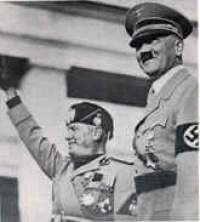




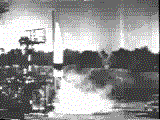
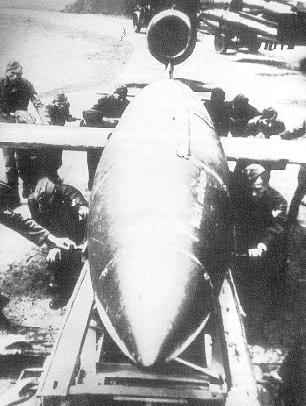
Its purpose was to counter the British night attacks with something similar, without the expensive bombers and practically without losses. The main reason was therefore a psychological one for the benefit of the German people. The effect of the V-weapons on London was also overestimated. We expected it to make the British population tired of war, for now and then we received reports that their morale wasn't as high as before. We expected more of a political reaction to the weapon . . . . You bombed the cement emplacements which permitted the launching anyway. These cement sites were prepared to launch the entire production. V-2s were to be produced at the rate of 20-30 units daily, 600-900 monthly, and we planned to fire about 80-100 V-2s daily. You also attacked the installations for V-2s.
WIMMER: In all these cases property that belonged to organizations was demanded, never that belonging to individuals. If there were individual cases where this happened, then these were abuses by individuals, but I cannot recall any such abuses.
WIMMER: From the very beginning, the Police laid claim to the handling of the Jews, to jurisdiction over the treatment of the Jews, as a matter of fundamental principle.
WIMMER: The development was briefly more or less as follows: Seyss-Inquart was opposed to the entire idea of taking up the Jewish question at all in the Netherlands, and in one of the Reich Commissioner's first conferences it was ordered that this question was not to be dealt with. After a certain time-it may have been a few months-the Reich Commissioner informed us that he had received an order from Berlin to take up the Jewish problem because Jews had participated in a relatively large number in various movements and actions in the Netherlands which at that time, indeed, could only be characterized essentially as conspiracies. Apart from that, one had to expect that if the war should last a fairly long time, the Jews who naturally because of the treatment they had undergone were not, and could not be, friends of the Germans. [For the full text of today's proceedings, Click here.] 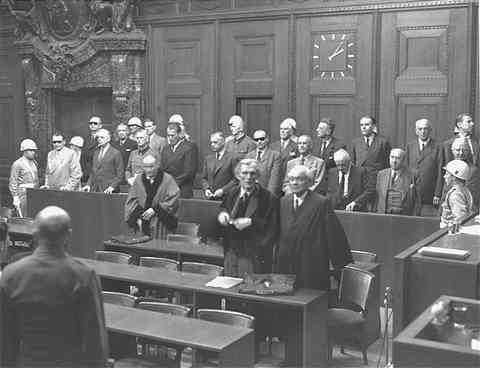


levi.bookin@gmail.com










Fair Use Notice: This site may contain copyrighted material the use of which has not always been specifically authorized by the copyright owner. We are making such material available in our efforts to advance understanding of historical, political, human rights, economic, democracy, scientific, environmental, and social justice issues, etc. We believe this constitutes a "fair use" of any such copyrighted material as provided for in section 107 of the US Copyright Law. In accordance with Title 17 U.S.C. Section 107, the material on this site is distributed without profit to those who have expressed a prior interest in receiving the included information for research and educational purposes. If you wish to use copyrighted material from this site for purposes of your own that go beyond 'fair use', you must obtain permission from the copyright owner.
Please Note: The list-owner and moderators of 3rdReichStudies are not responsible for, and do not necessarily approve of, the random ads placed on our pages by our web server. They are, unfortunately, the price one pays for a 'free' website.